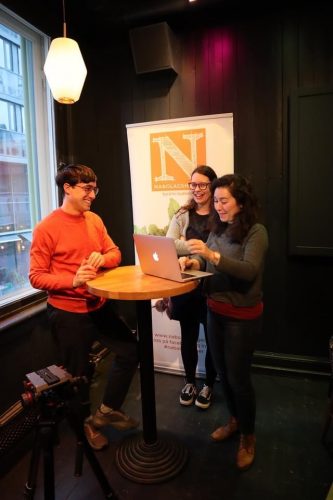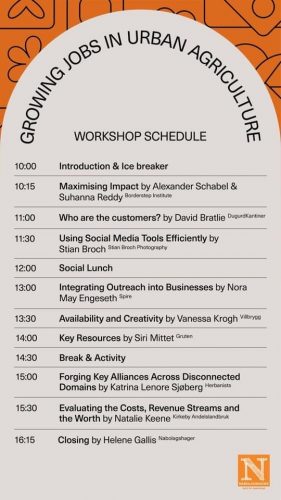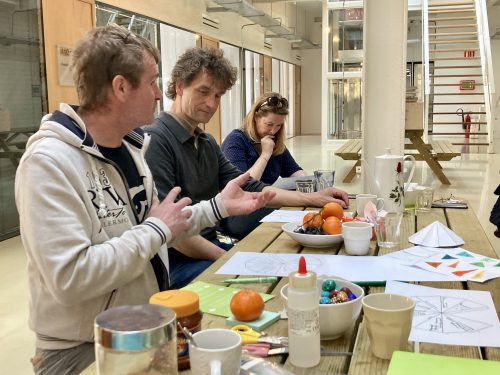Flashback to the interactive workshop “Growing Jobs in Urban Agriculture” in Oslo in 2020
In 2020 the Norwegian social enterprise Nabolagshager hosted, in collaboration with the County Governor of Oslo and Viken and other EdiCitNet partners, an online interactive workshop called “Growing Jobs in Urban Agriculture”.
This workshop aimed to facilitate exchange among practitioners working on urban agriculture, researchers, policy-makers and aspiring entrepreneurs on a major challenge urban farmers are facing: the need to develop business models that are tailored to their community’s needs and the wants of their customers.


An interactive space was provided for more than 40 participants to explore business models for urban agriculture, with 8 different sessions of 30 minutes each. The sessions were highly interactive with short sessions of knowledge transfer from experts in the field accompanied by space to work in groups through real-life cases. The goal was for participants to gain an in-depth understanding of how to develop their own business model for an urban agriculture enterprise.
This collaborative work paved the way for the creation of a new practical playbook called “Growing Jobs in Urban Agriculture”, a publication designed to allow existing ECS initiatives – and aspiring ones – to identify the necessary and sufficient conditions for economic and social success, and equip them with a tool to explore solutions and address the needs of their organisations. This playbook is available now for download at the EdiCitNet Marketplace: www.edicitnet.com/biz


